Traveling is hard. That sounds silly, and even slightly spoiled, when you are on the trip of a life-time. However, it is true. There is the kind of traveling where every need, every comfort has been attended to: think cruises, or all inclusive resorts. That kind of traveling is designed to be easy, to cater to the needs and expectations of the paying customer.
That’s not this kind of travel. This trip is about pushing ourselves, throwing ourselves into discomfort and ignorance. We are not mean’t to be comfortable (though the 4 star hotels and incredible meals help). Instead, we are hoping to recognize and celebrate discomfort, because that means we are experiencing another culture, and different expectations. Today, travel became hard.
It’s small things, like doors that aren’t clearly push or pull (leading to some hilarious, but mostly embarassing moments), or frustration at having to constantly ask for water refills at every meal. Doing complicated math every meal because we have to pay in cash and they don’t split checks for a group is annoying. Travel in a foreign land and culture is an accumulation of small discomforts that can lead to great discomfort, and eventually frustration.
We are fortunate to have a wonderful guide in Ines, who helps us navigate these discomforts by explaining why it makes sense in Croatia. That has helped us adapt, to modify our behavior to match our surroundings. Modifying your behavior on a constant basis is exhausting though, and definitely difficult (is that coming across yet?). Thankfully, this group is better equipped than most . We have an understanding of what it means to be interculturally competent, and the ability to navigate critical conversations – skills that are helping us utilize our strengths and participate fully in this experience.
We have Ines, of course, and Olga, who has spent her entire life navigating new cultures and adapting to new surroundings. Eriks, through his fantastic trainings, has given us tools that allow us to recognize what is happening, describe it, interpret it, relate to it, and finally adapt to it.
Ines tells us that we are one of the most inquisitive, curious groups she has ever guided through Croatia and we are inclined to believe her. Our classmates are rising to the challenge, constantly pushing themselves to embrace the small discomforts and understand what motivates the cultural collisions we are constantly experiencing.
Today though, was hard.
It’s cold.
It’s rainy.
The bura never stopped blowing.
Dubrovnik was cold, dark, and empty.
And yet, like tiny rays of sunshine peeking through the never-ending clouds my classmates persevered. We found moments to laugh at, and found joy in each others company and in the company of the Croatians who so graciously host us in the businesses and restaurants. Today we met two brothers, Josip and Ivan, who, together with their family, are working to build a world-class winery, Winery Milos, that will put Croatia on the global list for great wine-making. Their ambition was palpable, but it was a different kind of ambition, a cultural shift from what we think of in the states. Profit was a goal, yes, but profit as a supporting player in a greater goal: to make the best wine they possibly can. When asked about their goals in 10 years, they explained that they have no interest in expanding their winery, to reach more countries, or to get in every wine shop. They just want to be able to make truly audacious wine. Scale and efficiency is not on their radar. That’s pretty exciting and it helped keep my MARL classmates up through the first snowstorm Dubrovnik has experienced in over 5 years.
Lunch, again, was a highlight as we supped in a 12th century stone warehouse converted into a beautiful restaurant, Bota Sare, run by one of the ambitious new entrepreneurs that give Croatia should promise. He is a serial entrepreneur with five restaurants spread across Croatia, and a dream to ride across the United States on a big fat Harley Davidson.
And of course, Dubrovnik is spectacular. A walled city that fended off the Venetians, the Ottomans, Napoleon, Rome, and so many others to become what is known as the “Pearl of the Adriatic”. Truly a stunning city and deserving of its reputation. We are excited to explore it and a nearby hydroelectric power plant tomorrow. We will wear our long-underwear, drink our hot tea, and prepare for another day of glorious discomfort.
Greg Bohrer and Angela Guentzel
Seminar Management Team Today
MARL Class IX
Dubrovnik, Croatia
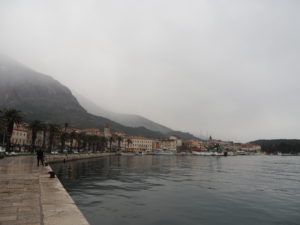
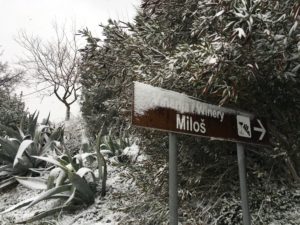
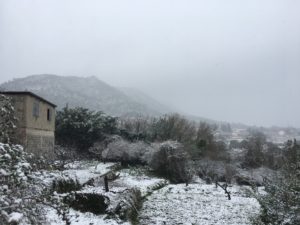

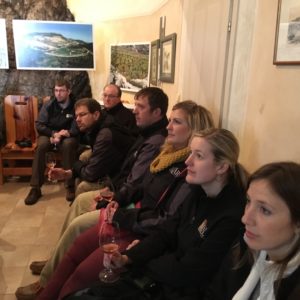
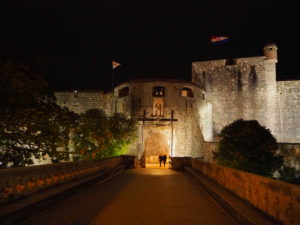
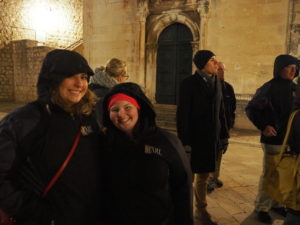
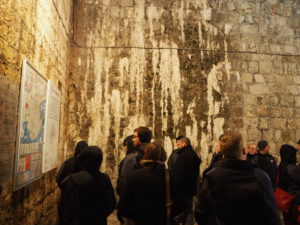
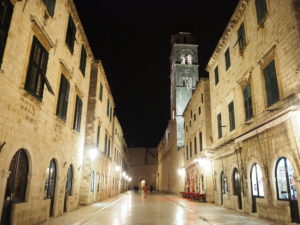
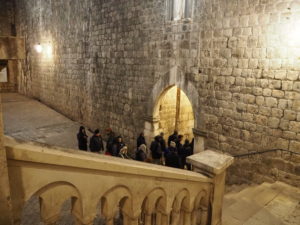
Comments